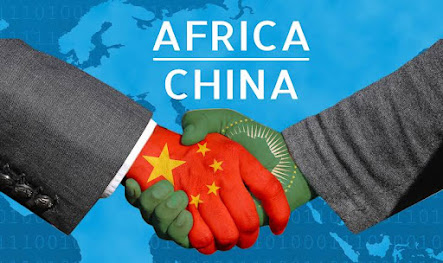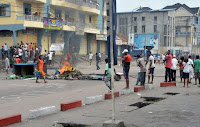China in Africa, an alternative narrative
Unfortunately, the “Predatory China” narrative dominates and shapes the framework under which Chinese investments, big or small, are scrutinized. A dangerous and simplistic narrative that tends to oversimplify not only the international context but also the motivations that drive both African countries and China to engage in these partnerships.
Although the opacity in which they are negotiated and the "meager" results on the ground have provided some valid arguments against these contracts, is that enough to sustain this narrative as the only explanatory framework? Has this narrative been an eye-opener for many in Africa who are now questioning Chinese investments? Though some would certainly want that to be the case, when we take a look at other factors, we may find an alternative narrative that would explain why Ghana and DRC are going head-to-head with China on these agreements, and why they are likely to become a point of dispute in some other countries in the future.
First of all, let’s take something out of the way. Despite all the negative western coverage of Chinese investments, are Africans looking to get rid of China? There is no clear and enough indication that political elites or even civil societies – who are the most vocal critics of Chinese investments - are looking for China’s replacement. A change of model, sure; but China’s departure, no! And the recent Afrobarometer 2020 survey indicates how Chinese investments are still positively perceived among Africans. For many, the goal is just to rebalance current deals in a way that provide more tangible benefits. In both cases of DRC and GHANA, governments are concerned about the relatively slow pace at which infrastructure components are being executed in contrast to the mining components. A discrepancy that leaves many on the continent questionning the fairness of these agreements.
That being said, in exploring an alternative narrative, let’s take a look at the timing of these evaluations. Putting aside external geopolitical factors that may or may not influence each of these two countries' decisions, especially in the case of the DRC; both presidents, NANA AKUFO and FELIX TSHISEKEDI, are facing upcoming elections.
In Ghana, NANA AKUFO had promised a lot with the "Ghana-China Bauxite deal" that was supposed to help Ghana fill a part of its infrastructure gap. As he is approaching the end of his second term, there is an urgent political incentive to see that deal through with tangible positive results, leaving a legacy for himself and his party.
A similar scenario is seen in DRC, despite the “US vs China” narrative that seems to be dominant. By 2023, TSHISEKEDI will be running for a second term and will be in need of strong electoral arguments. Since in many african countries nothing beats major infrastructure projects, pushing for more results from the “Sicomines deal” is one of the sure ways to have infrastructure built right before elections.
As we can see, there is a strong political incentive for both presidents to question the efficiency of these deals now.
As much as we understand why African governments would agree to these deals with China (big infrastructure financing), we still fail to understand why the Chinese would, and why they would be lagging when implementing the infrastructure components of these agreements.
The recent AidData report which covers 17 years, 2000-2017, of China's financing of development projects, helps us understand China’s motives behind its lendings. Besides securing the supply of strategic natural resources, Chinese investments are also aimed at earning money on high-return projects.
This gives us the second factor to look at and would explain the discrepancy in execution between the mining and infrastructure components of these agreements: the financing timeline.
Since both parties are in for different reasons, their timeline and evaluation benchmarks are at odds with each other’s, which often leads to frustrations on both sides. Whereas African governments are politically-driven, time-constrained entities with results to deliver, Chinese SOEs, driving these projects, are financial profit-driven, time-unconstrained entities. Infrastructures financing is conditioned by both the recipient country's internal situation – political and economic - and international commodities market fluctuations. Moreover, the projects are designed in a way that infrastructures financing is inextricably connected to mining revenues which either finance the infrastructure or repay the loans advanced for the projects.
This has been the case in both Ghana and DRC. In Ghana for instance, despite the first disbursement of 649 million $ in 2018, SINOSURE had to approve the remaining infrastructure projects that needed financing, and since then only 100 million $ have been disbursed by China. A similar situation has happened with SICOMINES in DRC where, out 3 billion $, only 825 million $ have been released and the remaining 2 billion $ are scheduled for the period of 2021 to 2025… for a project signed in 2008.
As we can see, where Africans are playing on the political spectrum for short immediate political gain, China is playing on the economic spectrum for mid and long-term economic goals. Adding the fact that time-horizon is much shorter for African leaders than their Chinese counterparts, who have more freedom and leeway in their negotiations, it is not surprising that at some point in time, usually every time there would be a change in power, the level of execution of these agreements will be a point of friction between both sides.
For now, is there a better alternative for Africa? Let’s face it, China is the only one with the financial, technical, and political will and incentives to invest in major infrastructure projects in Africa with all associated risks. It is easier for African countries to secure funding from China than from international financial institutions and donors. The political and economic instability of many resource-rich African countries had raised the cost of lending for major projects. Moreover, with the unwanted political interference that comes with these loans, many African governments will rather keep on dealing with China than any western country.
In conclusion, stability and institutional cohesion combined with long time-horizon, provide China with a considerable advantage over African countries not only when negotiating these contracts but also in achieving its economic and financial objectives. In their interactions with China, many African states must overcome the lack of internal political and institutional stability which would extend their Time-horizon, allowing them to set long-term political and economic goals and implement strategies to achieve them.
Failure to address this, is , in my opinion, the major reason why massive Chinese investments in Africa - mines for infrastructures, infrastructures financing- are fast becoming an issue (loan repayment, lack of infrastructure) and fail to create a win-win situation for both parties, especially for Africa.



Commentaires
Enregistrer un commentaire